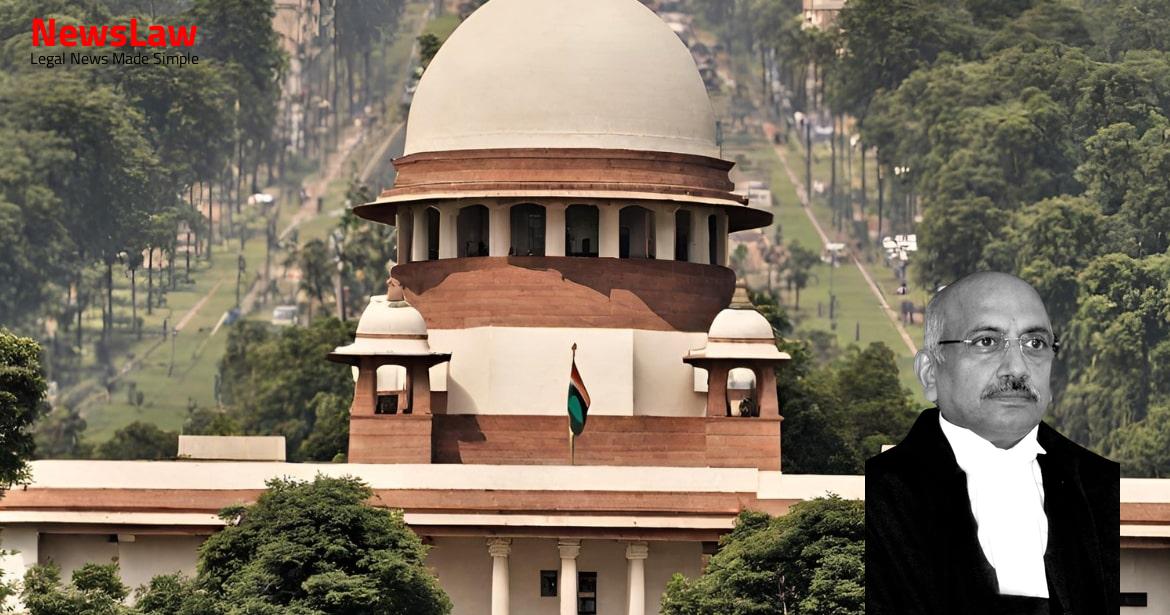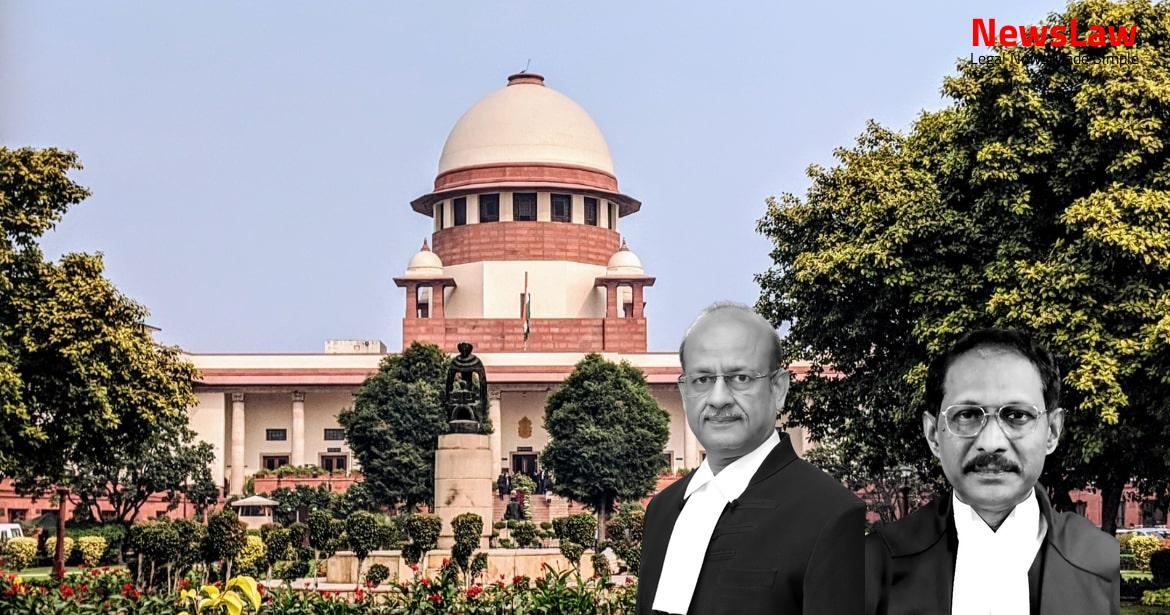Dive into the legal analysis of the MVRS scheme and resignation acceptance in a recent court judgment. Delve into how contract law principles and acceptance of offers played a crucial role in determining the outcome. Unravel the complexities of the case and the court’s interpretation of the MVRS scheme.
Facts
- NTC faced challenges in the textile industry at the turn of the century.
- BIFR recommended the MVRS to rationalize manpower and reduce losses of appellant No.2.
- BIFR recommended closure of nine out of eleven mills of appellant No.2 due to its sick industrial status.
- The MVRS application could be refused by the Management without giving reasons as per Clause 1.6 of the scheme.
- MVRS was proposed to facilitate voluntary retirement of employees in appellant No.1 and other mills of appellant No.2.
- BIFR imposed a condition that the closure of mills would only be allowed if all employees were given the benefit of a voluntary retirement scheme.
- The appeal against the single judge’s order was dismissed thrice for non-prosecution.
- The appeal was finally considered by the Division Bench on 12.03.2019.
- The Division Bench upheld the order of the learned single Judge.
Also Read: Supreme Court Judgment on Single Till Mechanism for HRAB Calculation: A Comprehensive Analysis
Arguments
- The respondent had the right to withdraw his application for voluntary retirement before the actual retirement date.
- The respondent’s application for voluntary retirement was considered an ‘invitation to offer’ and governed by contract law principles.
- The respondent’s offer of voluntary retirement was revoked when the management failed to clear his provident fund dues.
- The resignation letter submitted by the respondent was considered an offer under the MVRS scheme.
- The respondent had the right to withdraw his resignation before the effective date, as per several judicial pronouncements.
- The judgment in Union of India v. Gopal Chandra Misra supported the respondent’s right to withdraw the resignation.
- The jural relationship between the employer and the respondent continued until a specific date, allowing the respondent to withdraw the resignation.
- Acceptance of an offer to voluntarily retire was subject to adjustment of payable amounts, preventing finality until such adjustments were made.
- The respondent could not have been asked to carry on if the post stood abolished.
- In the case of a conditional offer, the offeree cannot accept a part of the offer and then reject the condition of the offer.
- Appellant No.1 did not comply with the condition relating to the provident fund dues.
- Clause 5.1 of the MVRS required that upon acceptance of the respondent’s resignation, he would retire and the post would be abolished simultaneously.
Analysis
- The respondent submitted a resignation letter under the MVRS scheme on 12.07.2002.
- The resignation was accepted on 28.05.2003, leading to the abolition of the post as per Clause 5.1 of the MVRS.
- The respondent’s claim of non-acceptance of resignation post the acceptance is disputed by the appellant.
- There were issues regarding the provident fund account, which led to delays in disbursement of funds.
- The Scheme required simultaneous acceptance of resignation, post abolition of the post, and then disbursement of benefits.
- The respondent attempted to withdraw his resignation but was advised to attend his duties.
- Postponement of the resignation cut off date did not imply non-acceptance of resignation.
- The closure of appellant No.1 did not affect the validity of the resignation acceptance.
- The respondent’s attempts to challenge the acceptance post abolition of the post were unsuccessful.
- The Scheme aimed at preventing replacement of employees after voluntary retirements.
- Disciplinary proceedings pending or contemplated for major penalty
- Contemplation or initiation of prosecution in Criminal Court
- No entitlement to MVRS benefits for employees resigning in a normal manner
- Benefits under MVRS include balance in Provident Funds Accounts
- Delay in relieving the respondent from duties would not impact the acceptance of his resignation.
- Resignation letter in question was an offer, not a future event and thus could not be suspended conditionally on depositing provident fund dues.
- Judicial pronouncements support the concept of ‘locus poenitentiae’ for withdrawing a resignation if the jural relationship continues until the resignation date.
- In J.N. Srivastava case, resignation was prospective and withdrawn before the specified date, with the acceptance not conditional on clearing dues.
- MVRS scheme was considered an ‘invitation to offer’ as per legal principle.
- Appellants’ non-challenge of certain letters does not invalidate the larger issue at hand regarding the acceptance of resignation.
- The interpretation of the MVRS scheme and actions under it led to the conclusion that resignation was accepted before the attempted withdrawal.
Also Read: Selection and Appointment of Judicial Officers in Himachal Pradesh
Decision
- The resignation letter of the respondent was accepted on 28.05.2003.
- The respondent is entitled to the benefits under the Scheme as per the acceptance of the resignation.
- Benefits under the Scheme have already been paid to the respondent.
- The appeal is allowed and the parties will bear their own costs.
- The impugned order is set aside.
Case Title: M/S NEW VICTORIA MILLS Vs. SHRIKANT ARYA (2021 INSC 552)
Case Number: C.A. No.-005685-005685 / 2021



